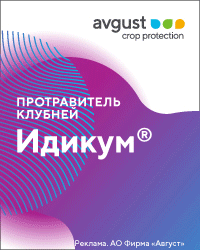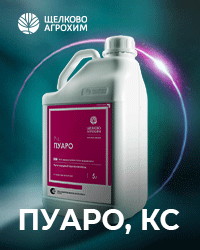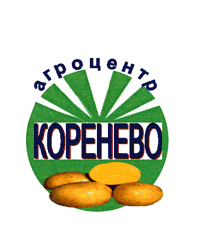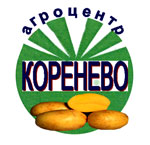UDC 635.35:631:82:631:86
https://doi.org/10.25630/PAV.2022.83.20.001
Borisov V.A., Virchenko I.I., Yanchenko E.V., Uspenskaya O.N.
Cauliflower is one of the most valuable vegetable crops for its nutritional and medicinal properties. Differs in a high content of complete vegetable protein, is a dietary product for diseases of the stomach, intestines, liver and diabetes. However, the cultivation of cauliflower is fraught with great problems due to the very high demands of this crop on the level of soil fertility, elements of mineral nutrition, soil and air moisture. In the soil and climatic conditions of the Central Black Earth Region of Russia, the yield level of cauliflower fluctuates between 10–20 t/ha, on average in Russia 9.7 t/ha, which does not always compensate for the costs of its cultivation. The most important condition for increasing the yield and profitability of this crop is the optimization of the nutritional regime and the introduction of new high-yielding varieties and hybrids. The aim of our work was to find ways to optimize the nutrition of cauliflower using organic fertilizers – composts and their combinations with mineral fertilizers. In this regard, in 2020–2021, the Department of Agriculture and Agrochemistry of the ARRIVG-branch FSBSI FSVC conducted comprehensive studies to study the responsiveness of some varieties and hybrids of cauliflower to the use of organic (bird compost at a dose of 6 t/ha) and mineral (N120P120K180) fertilizers and their combinations, as well as the effect of these fertilizers on product quality. Seven varieties and hybrids of cauliflower of domestic and foreign selection were studied. The research results showed that the combined use of mineral and organic fertilizers to the greatest extent increases the productivity of cabbage, on average by 30%, while purely mineral fertilizers – by 25%, and purely organic – by 19%. The combined use of mineral and organic fertilizers allows to obtain an average of 28.3 t/ha of cauliflower heads; for individual varieties and hybrids from 23.9 to 38.1 t/ha. Product quality remains good when mineral and organic fertilizers are used both separately and jointly.
Key words: cauliflower, variety specimen, mineral fertilizer, biocompost, yield, quality
Borisov V.А., D. Sci. (Agr.), professor, chief research fellow of the Department of agriculture and agricultural chemistry. E-mail: valeri.borisov.39@mail.ru
Virchenko I.I., Cand. Sci. (Agr.), senior research fellow of the Department of agriculture and agricultural chemistry. E-mail: vniioh@yandex.ru
Yanchenko E.V., Cand. Sci. (Agr.), leading research fellow of the Department of agriculture and agricultural chemistry. E-mail: elena_0881@mail.ru
Uspenskaja O.I., Cand. Sci. (Biol.), leading research fellow of the Department of agriculture and agricultural chemistry. E-mail: usp-olga@yandex.ru
All-Russian Research Institute of Vegetable Growing – branch of FSBSI Federal Scientific Vegetable Centre (ARRIVG – branch of FSBSI FSVC)
- World production of cauliflower and broccoli by country [Web resource] URL: http://www.atlasbig.com. Access date: 12.15.21 (In Russ.).
- Krug G. Vegetable growing. Transl. from V.I. Leunov. Moscow. Kolos. 2000. 576 p. (In Russ.).
- Borisov V.A., Litvinov S.S., Romanova A.V. Quality and keeping quality of vegetables. Moscow. VNIIO. 2003. 625 p. (In Russ.).
- Borisov V.A., Lysenko I.I. Fertilizers and growth regulators on cauliflower. Potato and vegetables. 2015. No3. Pp. 20–21 (In Russ.).
- Litvinov S.S. The method of field experiment in vegetable growing. Moscow. Rosselkhozakademiya. 2011. 648 p. (In Russ.).
- Experimental methodology in vegetable growing and melon growing. Ed. by V.F. Belik. Moscow. Agropromizdat. 1992. 319 p. (In Russ.).
- Methodological guidelines for the design of the use of fertilizers in intensive vegetable growing of open ground. A.L. Ivanov, V.S. Sychev, P.A. Chekmarev, L.M. Derzhavin, V.A. Borisov. Moscow. FGBNU Rosinformagrotech. 2012. 476 p. (In Russ.).
For citing: Responsiveness of cauliflower varieties to the use of biocompost and mineral fertilizers. V.A. Borisov, I.I. Virchenko, E.V. Yanchenko, O.N. Uspenskaya. Potato and vegetables. 2022. No1. Pp. 19-22. https://doi.org/10.25630/PAV.2022.83.20.001 (In Russ.).

















